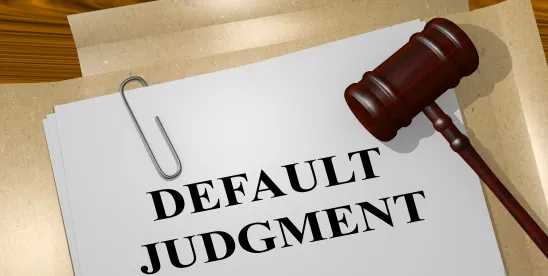John Preston Thompson is a bit of a troublemaker.
According to the FTC he was involved in a debt relief scheme that bilked millions from consumers: https://www.ftc.gov/news-events/news/press-releases/2022/11/ftc-halts-debt-relief-scheme-bilked-millions-consumers-while-leaving-many-deeper-debt
He also found himself in a heap of TCPA trouble with noted consumer-protection warrior Diana Mey.
Following a dust up over discovery responses in a class action in West Virginia judgment of nearly $1.5MM was entered on a default basis against Thompson.
For those interested, there were 180 calls at issue and the breakdown was as follows:
The West Virginia Court found that 180 calls violated the TCPA and 104 calls violated the WVCCPA. It awarded statutory penalties of $500 per violation under the TCPA, for a total of $90,000, which the court then trebled based on a finding that the violations were willful and knowing. The total penalty award was $270,000.
For the WVCCPA damages, the West Virginia Court awarded the maximum penalty of $5,373.09 per call for total penalty award of $558,801.36.
After entry of the Default Judgment, the West Virginia Court entered two orders awarding attorneys’ fees under the WVCCPA, one for pre-appeal fees of $448,595 and another for post-appeal fees of $200,965.56. The total amount that Ms. Mey requests the Court hold to be nondischargable is $1,478,361.92.
So $270k for TCPA. $558k for WVCCPA penalties. And nearly $650k in attorneys fees.
My goodness.
And notice, this judgment isn’t entered against the companies Thompson operated–it is entered against him personally.
So Mr. Thompson does what every good American would do when faced with a $1.4MM judgment he can’t pay–he declares bankruptcy.
But Mey is waiting for him in the hallway of the Bankruptcy court with a request that the court find the judgment non-dischargeable. According to Mey the acts by Mr. Thompson arose from a “willful and malicious injury” and cannot be discharged.
And that leads to the decision in In re: John Preston Thompson, 2024 WL 3648315 (Bk. M.D. Tenn. Aug. 2, 2024)– a truly fascinating TCPA decision from a bankruptcy court.
The issue presented is whether a default judgment in a TCPA/WVCCPA case mandates a finding of non-dischargeability under the doctrine of collateral estoppel.
The holding: it does not. But wait, because there is more to the story.
In addressing the issue the Court formulated the governing rule: A debt is not dischargeable where “debtor willfully and maliciously injures a creditor if, acting without just cause or excuse, he knows or is substantially certain that his actions will cause injury.”
Reviewing the applicable standards the court found a default judgment in a TCPA case does not necessarily meet this threshhold–willfulness under the TCPA does not require any intent to harm, and it is unclear whether phone calls actually did harm Ms. Mey here. The Court applied a similar analysis on the WVCCPA provisions. So a default judgment standing alone is not sufficient.
The Court also refused to find Thompson’s purported bad-faith conduct in the litigation resulted in the judgment being non-dischargable– bad faith is not the same as malicious injury in the BK court’s mind.
So just because a TCPA defendant behaves badly and winds up with a willfulness award against him or her does not mean BK is off the table.
But…
But, we’re not done.
This ruling isn’t a final determination on the issue of dischargeability. It was simply a finding that the debt isn’t necessarily non-dischargeable because of the willfulness finding. Mey can still prove the specific phone calls at issue were designed to cause her harm. And given the FTC’s ruling suggesting Thompson was a big scammer–she may still end up winning.
A few big take aways here:
- Illegal calls can, and often do, lead to big judgments against people personally;
- While BK may be an answer for some offenses, anytime a finding of willfulness is made there is some risk the judgment will no be dischargable;
- Failing to defend yourself in court–or doing so badly–may result in a default judgment and a presumptive finding of willfulness;
- A bankruptcy court will not necessarily find such a judgment to be non-dischargeable, but it might be–and that’s a horrifying thought.
So at bottom, complying with the TCPA is the only way to make sure you’re not risking losing everything you have worked so hard for. No biggie. (Actually its a big biggie.)




 />i
/>i

